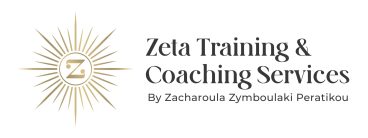The rapid evolution in the fields of coaching and training globally reflects the growing need for education and development in all areas of life. According to research, people are constantly seeking ways to improve both their professional and personal lives. The development of interpersonal and social skills is proving critical for achieving goals and well-being at every level.
What is Coaching?
Coaching is a process that helps individuals make conscious decisions and empowers them to become leaders in their own lives. Using a variety of tools and techniques, the coach motivates the coachee to get to know themselves, develop their skills and talents, understand and overcome their weaknesses, and surpass the obstacles they face. Coaching allows individuals to positively orient their lives and achieve their dreams.
What is Training?
At the corporate level, training services are usually offered in the form of seminars aimed at developing essential skills such as leadership and motivation of the employees, stress management, effective communication, teamwork, negotiation, critical thinking, time management, flexibility and creativity. These qualities are vital for professional and personal success. Investing in human resources through training proves to be key to a company’s success, as it improves productivity, work relationships and the cooperative atmosphere.
What is Mentoring?
Mentoring is a guiding relationship between a more experienced person (mentor) and a less experienced person (mentee). The mentor offers advice, guidance, support, and knowledge, helping the mentee develop their skills, knowledge, and confidence. Mentoring can take place in various contexts, such as the professional environment, education, or personal development, and can be either formal with scheduled meetings and goals or informal with natural interaction and tailored to the mentee’s needs.
The Role of the Life Coach, Executive Coach, Mentor and Trainer
As a life coach, executive coach, mentor and trainer, I recognize the importance of developing both interpersonal and social skills. Through my work, I have seen how appropriate strategies and techniques can help individuals achieve their goals, improve their quality of life, and become happier, healthier, and more productive. Programs like the Stress Case Study at the NHS (National Health Service in the UK) demonstrate the importance of developing human potential to improve productivity and work relationships.
Lifelong Learning as a Tool for a Better Future
Education should not be limited to imparting knowledge but should also include cultivating inner balance and self-awareness. In conclusion, the dynamic fields of coaching, training, and mentoring are essential in fostering personal and professional growth in today’s fast-paced world. By developing crucial interpersonal and social skills, individuals can overcome challenges, achieve their goals and enhance their overall well-being. Investing in continuous education and personal development not only cultivates inner balance and self-awareness but also drives success and fulfilment, creating a more productive and harmonious future for everyone.
